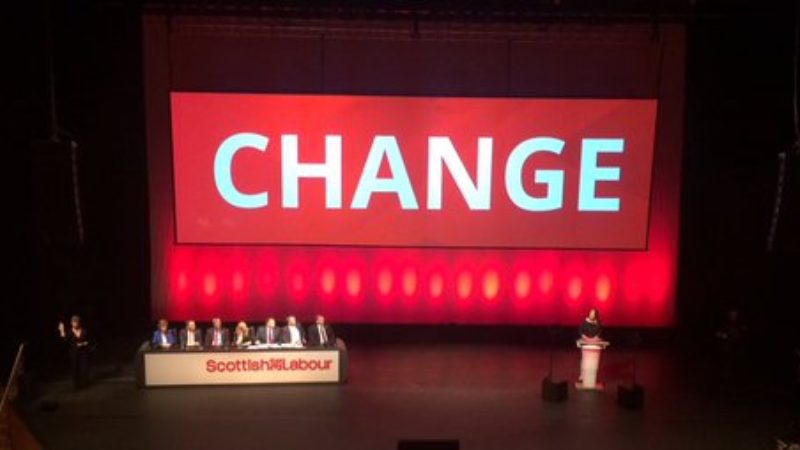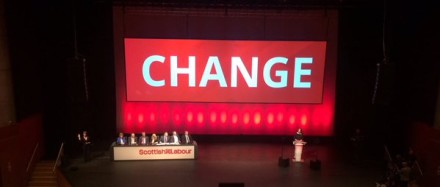
Two days, two leaders and two very different speeches.
Of course, Jeremy Corbyn could not arrive on stage in Perth yesterday with a bagful of crowd-pleasing policy announcements, as Kezia Dugdale did today. Dugdale is preparing for an upcoming election while Corbyn is not; their speeches necessarily carry different purposes. But, ultimately, that was not the greatest difference between them.
There was no political content of either speech that would have stopped the other person delivering it, but in terms of presentation, focus and, to an extent, analysis, there were stark contrasts.
Corbyn’s speech was an appeal to voters that if they want socialism, they must vote Labour. He obviously believes that the key to success in Scotland is by championing Labour’s bonafide socialist credentials: he used the word 12 times throughout his speech. It is based on a belief that the SNP routed Labour in May because they were seen as the more authentically left wing party.
That is not a belief shared by Scottish Labour leader Kezia Dugdale, who told me in no uncertain terms that it “wasn’t where we sat on the political spectrum that caused this problem” and that it would be a mistake to “presume people in Scotland think the SNP are left wing”. She mentioned socialism just the once in her lengthy address.
Corbyn also seemed hesitant to stick the boot into the SNP, more inclined to lovebomb them by declaring that he wanted to “take the best of the energy” that was “unleashed” during the independence referendum. He clearly sees the rise of nationalism as part of the anti-politics mood that helped him get elected, and spoke of reaching out “to people who feel that politics is too distant, that it’s alien from their lives.”
In the one passage of the speech where he did criticise the SNP, he did not mention them by name, giving them the Macbeth-like moniker “the Scottish Government”.
Dugdale, on the other hand, dished it out to the Nationalists – the SNP got 29 mentions, although last year’s referendum had merely a passing reference.
Corbyn’s speeches are still not what you would expect from the leader of a political party (and that is, of course, part of his appeal). They still lack a clear focus, with unusual anecdotal detours. When I saw him speak to a packed-out room in South Wales during the leadership campaign, he lectured at length about the plight of trade unionists in Colombia. Yesterday, he mused on the Spanish Civil War, and solidarity for those persecuted by General Pinochet. At one point, where the speech had a line about Shaker Aamer’s release, he ad-libbed a further paragraph about the subject. As he improvised and expanded on issues that he found most interesting, it was hard not to feel a pang of sympathy for the poor soul running the autocue.
Kezia Dugdale delivered a strong, direct speech. Her pledges to restore tax credits and ensure a living wage for carers are good policies, but did not feel like the centrepiece of the address – they could not be, because no one in the room believes Scottish Labour will be in a position of power next May to see them through.
Her keynote address felt more like the kind of speech a leader gives. It was not tubthumping, it was not verbose, but the extended standing ovation she received at the end showed it was effective. Perhaps it is a harking back to the kind of old politics Corbyn eschews, but I left with the impression that it was the kind of speech he should aim to give.





More from LabourList
‘Mor-gone but not forgotten’
Downing Street director of communications Tim Allan resigns
‘Treasury ‘Green Book’ reform is a game-changer for left-behind coastal towns’